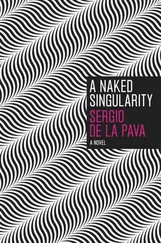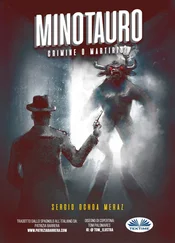Sergio De La Pava - Personae
Здесь есть возможность читать онлайн «Sergio De La Pava - Personae» весь текст электронной книги совершенно бесплатно (целиком полную версию без сокращений). В некоторых случаях можно слушать аудио, скачать через торрент в формате fb2 и присутствует краткое содержание. Год выпуска: 2011, ISBN: 2011, Издательство: Xlibris, Жанр: Современная проза, на английском языке. Описание произведения, (предисловие) а так же отзывы посетителей доступны на портале библиотеки ЛибКат.
- Название:Personae
- Автор:
- Издательство:Xlibris
- Жанр:
- Год:2011
- ISBN:9781456876968
- Рейтинг книги:3 / 5. Голосов: 1
-
Избранное:Добавить в избранное
- Отзывы:
-
Ваша оценка:
- 60
- 1
- 2
- 3
- 4
- 5
Personae: краткое содержание, описание и аннотация
Предлагаем к чтению аннотацию, описание, краткое содержание или предисловие (зависит от того, что написал сам автор книги «Personae»). Если вы не нашли необходимую информацию о книге — напишите в комментариях, мы постараемся отыскать её.
— from Personae
Personae — читать онлайн бесплатно полную книгу (весь текст) целиком
Ниже представлен текст книги, разбитый по страницам. Система сохранения места последней прочитанной страницы, позволяет с удобством читать онлайн бесплатно книгу «Personae», без необходимости каждый раз заново искать на чём Вы остановились. Поставьте закладку, и сможете в любой момент перейти на страницу, на которой закончили чтение.
Интервал:
Закладка:
When she arrived she saw that the splatter of the blood was as she remembered. Everything was as she remembered but what had then been mysterious now seemed almost mandatory. It is mandatory for example that all flesh deteriorate. That all reflexes slow and all breathing grow more laborious. It is mandatory that the deterioration one day cease entirely but not in a rehabilitative way. What about in a palliative way? Doesn’t the deterioration constitute such a special kind of hurt that its cessation becomes a positive development? Only if it truly is a development and that concept requires persistence through time.
Better yet, what is the relation of an artist to his art and how does that in turn relate to this mandatory deterioration? Is the artist cursed, blessed, blessed to be cursed, or cursed to be blessed? Just plain cursed Antonio came to believe. How else to characterize an activity that in no apparent way benefited its creator but rather functioned more like a just-shy-of-mortal injury every time it was engaged in? There was simply no way to tell, and yes that included speaking to the actual writer, whether Energeias was unfinished or not and it was that uncertainty that had confounded Helen and initially tainted the rest of her enquiry.
Unlike Schubert with his Eighth, Antonio was under no external pressure to create Energeias . If you proceed from the notion that there are no unmotivated highly complex actions then a suitably complex explanation for its creation was needed; especially since there was a sense, Helen now saw, in which the creation killed the creator and this was so whether it was unfinished or not. Helen understood that the trajectory of life did not point toward greater complexity or obfuscation. It wasn’t quite the circle people made it out to be either because the two ends of the line never truly joined. It was instead a jagged parabola culminating in a return to simplicity and directness and a concomitant rejection of ornamentation and pretense. It was in this sense that Energeias killed Antonio since someone liberated from Time would be unable to distinguish between a work being written by imminent death and that same work essentially writing the death.
Still, she needed to identify a non-metaphoric cause of death and do so in a place where the leading cause of death was life. Necessary because, here at least, it was not the case that death was caused by an overabundance of life. This was, as she’d said, unnatural , and whether such an end occurred more than a century in or within minutes, Helen Tame found it offensive. Because it was one thing to accept that all life would terminate and terminate in substantially the same way and quite another to accept that this highly predictable process and outcome would nonetheless be susceptible to extreme unpredictability and randomness so that every participant would be denied even the small comfort of a guaranteed orderly progression to finity. Look at the person across from you or mentally designate the one whose sudden absence you would find most enervating, the one that would hollow you out, and realize that only the most negligible spacetime twitch is required to disappear them. Realize as well that the disappearance would be irrevocable and fixed and if you find these concepts to be uninterestingly commonplace think for a moment if it really had to be this way and whether you haven’t actually uncritically internalized something that in truth evinces highest-level cruelty.
Helen Tame rebelled against this cruelty, sought to stamp it out. But a responsorial growth was all she’d ever detected and now her latest revelatory insight was only confirming the almost cosmic or was it comic injustice of it all. We build on sand when we play at building so have to be prepared to watch it all slide down at displacement of the wrong grain. Knowing the answer, identifying the particular grain, changed nothing, but it did preserve the record in a way that felt important. Her report was done and her report would do that; one last time Red into Black. There were moments when Helen still skeptically wondered at the ease of some of its conclusions and of course she deeply distrusted ease but in spite of all that, she somehow knew the document was swollen with truth and that this truth gave it value notwithstanding anything else. She’d often, she saw, been given these direct lines to truth but so often what she’d found had not been encouraging. This case, the last one, had been different. Without being able to pinpoint a precise cause she felt almost ennobled by her work on it. She recognized that fittingly no glory would come to her from the work and that was an enhancement. No need to gather people and identify then take hold of the killer either. The killer was dead too; a victim, you could say, of the very violence he helped engender. How strange how if you burrow deep enough all you seem to find is connective interrelation. Learn a fact today and marvel tomorrow at how ubiquitous it then seems, how crucial to the edifice of human knowledge and how negligent of you to only then have learned it. Helen Tame knew this all along but only now felt it so entirely, except the sensation was not of discovery or knowledge but rather of something like detached bemusement. It meant you accepted what you had to because failure to do so changed nothing except to make you weaker when the only thing the universe understood and honored was strength. Simultaneously and paradoxically it meant that the timelessness of the connectivity made it so that personal mistakes endured like a stain. It meant a lot of other things but most crucially it just plain meant . The rush of a sudden exhilarative flood of meaning was what drew Tame to the activity in the first place and though she knew she would miss it she felt that the great flood of the last place was enough to sustain her indefinitely. How alone Antonio had looked on that dirty floor. And solitude may help the work but it may also poison the soul. At least it was not accurate to say that solitude worsened those final moments. No, the final passage can only be got through alone so at his finality Antonio was at last on equal footing with even the most accompanied human. Then Helen had helped. Taken his inert hand and breathed a final burst of life into him. She could rest.
VIII. Final Excerpt of Dr. Helen Tame’s Introduction to Her Article: BACH, GOULD, AND ACONSPIRATORIAL SILENCE
A young Glenn Gould sat often at the piano and, most relevant to the following, became fascinated by the long decay of struck notes. The progress of Gould as the piano player he was always expected to be was predictable in its conformative arc until 1955. That year, at age twenty-two, he recorded a performance of the Goldberg Variations that still resounds today. Sitting at the piano, his hands oddly moving at almost eye level, Gould attacked the variations like someone barely in his twenties should. The result was a musical maelstrom that seemed to lay waste to the very concept of classical music. I will argue that for our purposes, and in a development that is not unrelated, twenty-six years of silence followed as it relates to the variations.
In 1981 Gould returned to the studio, one enhanced by a quarter-century of human technological development, and again recorded the variations. This time the result was almost ruminative. What you sense in the difference between the two recordings is the prototypical human slowing; the recognition that there are hidden dimensions in life that must be accounted for, that there’s nothing to rush toward and that maybe it’s better to elongate things like the certain wistfulness that emerges from the epiloguey repetition of the aria at the end.
A couple things about these coupled performances.
Know that Gould came to view the recording studio as a kind of musical instrument onto itself. Of course today the studio Gould used would be laughed at by the average thirteen-year-old clicking in his parents’ basement. But it was the best Gould would ever see as the next year he suffered a stroke a couple days after his fiftieth birthday and died shortly thereafter. He was then buried under the aria, its first few measures deemed lapidary and engraved on his marker.
Читать дальшеИнтервал:
Закладка:
Похожие книги на «Personae»
Представляем Вашему вниманию похожие книги на «Personae» списком для выбора. Мы отобрали схожую по названию и смыслу литературу в надежде предоставить читателям больше вариантов отыскать новые, интересные, ещё непрочитанные произведения.
Обсуждение, отзывы о книге «Personae» и просто собственные мнения читателей. Оставьте ваши комментарии, напишите, что Вы думаете о произведении, его смысле или главных героях. Укажите что конкретно понравилось, а что нет, и почему Вы так считаете.












